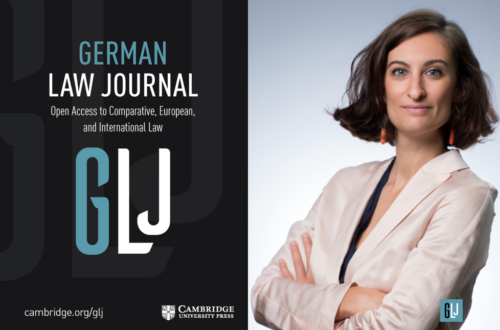
Editorial | Volume 24 No. 5
Dear Readers,
This latest issue, comprising content published separately in FirstView, is wide-ranging in its scope. With articles discussing solidarity with migrants at sea, the international legal-historical insights of Charles Henry Alexandrowicz, attorney-client privilege, and European Central Bank (ECB) monetary policy, there will be something here for everyone.
Our issue opens with two articles focusing on the ECB. First, David Quinn’s discussion of the Bank’s presumed role as the sovereign lender of last resort (LOLR). In an historical analysis of the ECB’s interventions from a consequentialist rule of law perspective, Quinn argues that the interventions of the ECB represent a functional softening of the no sovereign LOLR rule originally implied by the treaty towards a rule-with-exceptions. Next, Christian Calliess and Ebru Tuncel consider the role of the environmental integration principle (Article 11 TFEU) in terms of what they refer to as the ‘greening’ of the ECB’s monetary policy. Their article analyses the possibilities for and limitations to such greening of the Bank’s monetary policy framework under this provision.
Sticking with the money theme –international money laundering, to be precise– Robin Hofmann and Livio Lustenberger draw our attention to the incompatibility of obligations to report with the privileged relationship of confidentiality between attorney and client. This article discusses attorney-client privilege from historical, constitutional, and empirical perspective – in terms of the latter, with a specific comparison of the respective German and Swiss legal frameworks.
Charlotte Hahn and Kushtrim Istrefi’s article calls out the EU and its Member States for not only having failed to protect migrants at sea, but having adopted (often illegal) tactics intended to impede their arrival in Europe. They present the novel idea that the monitoring and search & rescue activity undertaken by maritime NGOs in solidarity with migrants ‘may qualify’ as forms of freedom of expression as protected by Article 10 of the European Convention on Human Rights. Next, Martijn van den Brink discusses the CJEU’s headscarf judgments with a view to drawing broader conclusions for EU non-discrimination law, both concerning the purpose of protecting against (religious) discrimination and in terms of the distinction between and the justification of direct and indirect discrimination.
In their article, João Pedro Quintais, Naomi Appelman and Ronan Ó Fathaigh consider the ‘unprecedented’ means of exercising freedom of expression online provided by online platforms – for example, Meta/Facebook, Twitter, and YouTube – and the attendant power wielded by such platforms over online participation. With a focus on Article 14 Digital Services Act (DSA), the authors engage with the issue of enforceability of fundamental rights via T&Cs, querying whether online platforms are required under this provision to apply EU fundamental rights law, and whether the provision may serve to mitigate the control of Big Tech over online expression.
Finally, Eric Loefflad provides a materially grounded historical sociology of international legal thought through the lens of Charles Henry Alexandrowicz’s genuinely global history of international law. An early forerunner of Third World Approaches to International Law (TWAIL), Alexandrowicz ‘indicted Europe’s long-standing exclusion and colonization of the Afro-Asian world as legally, intellectually, and morally unjustifiable’ (913). Here, Loefflad considers specifically how Alexandrowicz’s history of the law of nations was influenced by his consciousness of the historical Polish-Lithuanian Commonwealth.
Wishing you a relaxing summer.
As always, happy reading,
Jen Hendry, on behalf of the GLJ Editors-in-Chief







